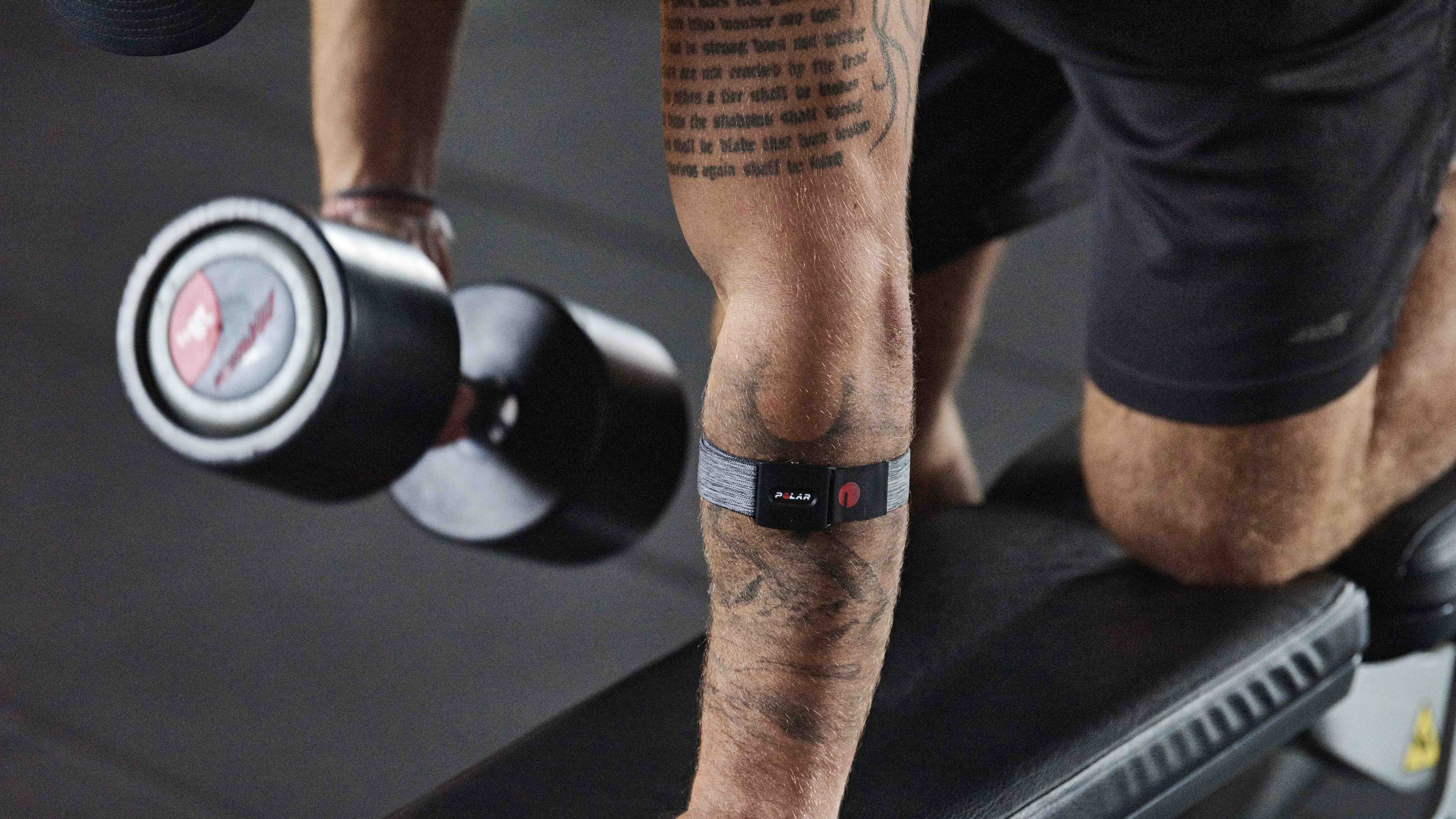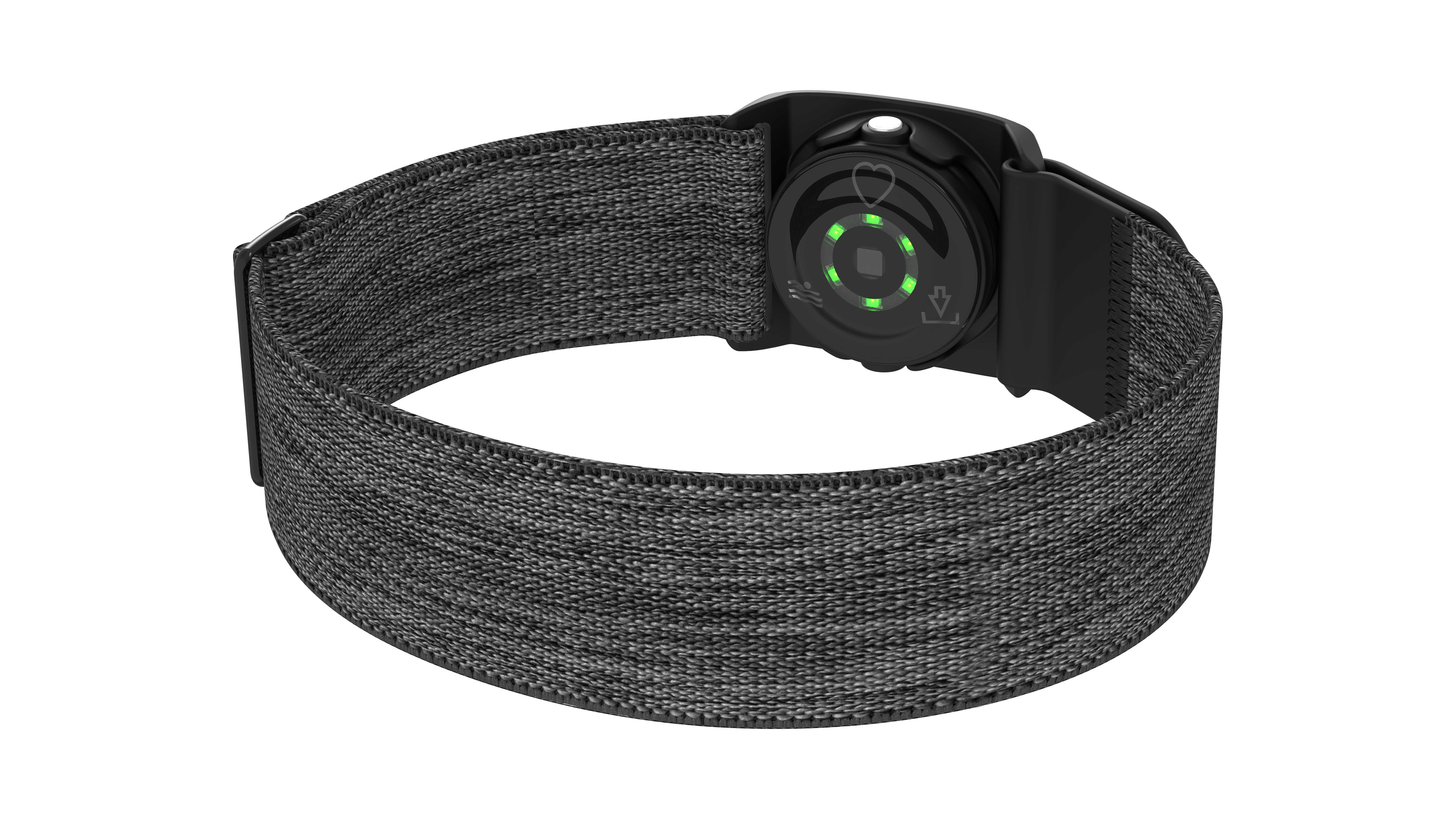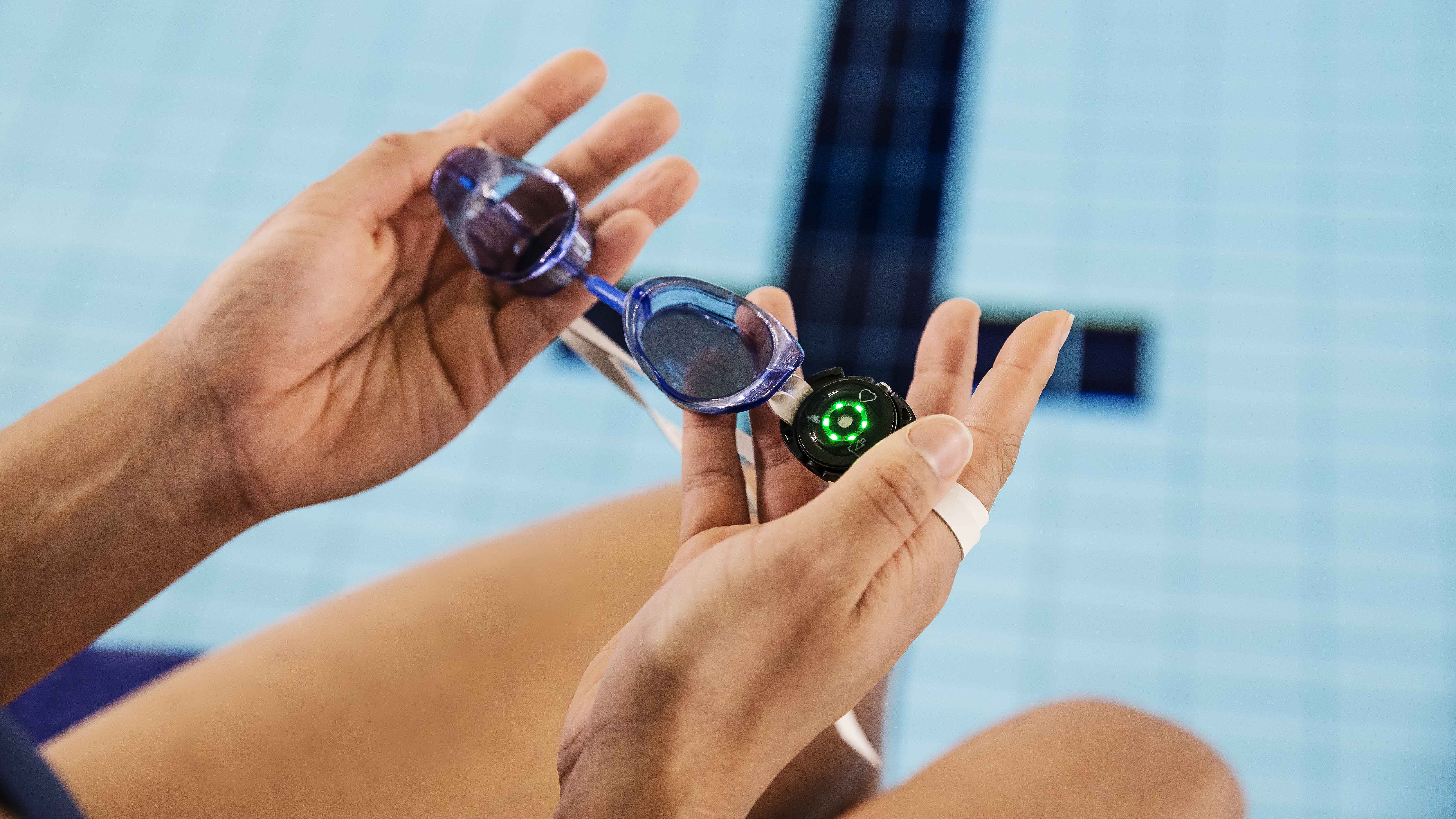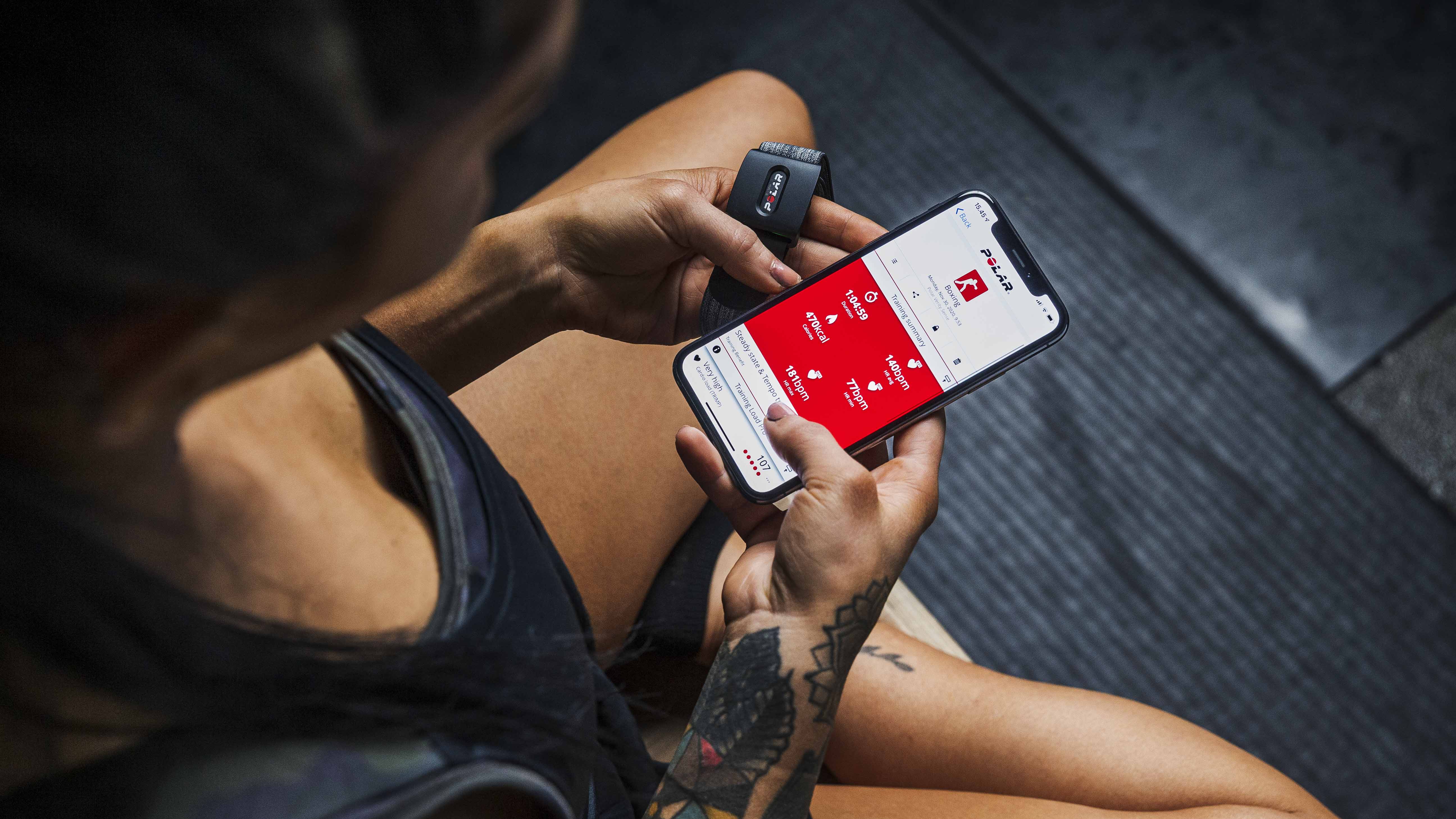Polar Verity Sense review: a no-fuss optical heart rate monitor for exercise
Polar's optical heart rate monitor is an ideal option for resistance training, especially for people who prefer kettlebells


Polar Verity Sense is a fantastically versatile, feature-rich and well-priced heart rate monitoring strap – but you do have to contend with a not-so-user-friendly companion app
-
+
Versatile
-
+
Great design
-
+
Comfortable
-
+
Decent battery life
-
-
Poor app design
Why you can trust T3
Verity Sense is a serious heart rate monitor for running, swimming, cycling and workouts, but it's also designed to be comfortable and easy to use. The latest from hardcore Finnish fitness brand Polar, it's one of the best heart rate monitors to date to use an optical sensor – as found on all the best running watches – rather than the traditional electrical one.
That's why it doesn’t wrap around your chest but instead goes on your arm, which a lot of people find more convenient. It can also attach to your swimming goggles to read your pulse from your forehead.
Boasting a host of additional fitness features, the Verity Sense has the potential to be a great alternative for those who find chest straps too clunky and smartwatches too unreliable. We put it to the test to find out just how good it is.
Polar Verity Sense review: Price and availability
The Polar Verity Sense is available to buy now at Polar UK, Polar US and Polar Australia for a reasonable £79.50 / US $89.95 / AUD $129. It ships with a sensor, swimming goggles strap clip, a USB charging adapter, an armband, and a small mesh carrying case.
In terms of colourways, there only seems to be one flavour available here, and that’s a melange charcoal strap with a black plastic casing. However, there are two strap sizes available: M-XXL, which covers limbs 22-34 cm in circumference, or smaller XS-S size at 15-22 cm.
Polar Verity Sense review: Design
The Verity Sense isn’t all that to look at, but it does champion practicality, which we’re a massive fan of – especially when it comes to wearables. Not only can it be strapped to just about any limb of your choice, but the super versatile sensor pod pops out and can be slotted into a swimming goggle strap clip, where it can sit against your temple.
While the idea of this makes us wince, it does offer something unique, which the wearable market is short of these days. We should also note that this is the same optical sensor as seen in the Polar OH1+, which we’re happy about as the device is renowned for accuracy.
Get all the latest news, reviews, deals and buying guides on gorgeous tech, home and active products from the T3 experts

Aesthetically, the Verity Sense is minimal. The stretchy melange charcoal strap will suit just about any outfit (a bonus if you’re picky about your wearable matching your gym kit), and - as mentioned above - the materials used don’t scream premium, so we doubt you’ll be using it to fool people that you’ve bought some super-fancy Apple Watch alternative.
To charge the Verity Sense, you simply pop it into a separate USB adapter. However, this - and all the other little attachments it comes with - are pretty fiddly to handle. We can imagine they’d be pretty easy to lose...or break. They’re made from a cheap-feeling plastic akin to the toys you used to find in cereal boxes.
In terms of function, the pop-out sensor has a small button on each side, which can be a bit tricky to press right on the first try. Still, it’s comfortable to wear thanks to an easily adjustable, stretchy band that opens via a velcro attachment. Although it will leave a mark on your arm after use.
Polar Verity Sense review: Features and workout performance
The Verity Sense is super versatile in that it can be slipped around a limb to more accurately measure your heart rate and track a host of workouts - from your bog standard running and cycling to more exotic activities, like rollerblading or sailing. Nevertheless, we used ours for live-streamed yoga and HIIT classes on Zoom, and it worked a treat.
Firing up the Verity Sense is pretty straightforward, albeit a little finicky. When you turn it on, you have three modes to choose from: broadcast (your workout to an external device), record (your activity to the device’s memory) or swim. The button’s so tiny it doesn’t always register a press, and if you’re doing this while wearing the band, you’ll probably find it trickier as the sensor won’t resist the urge to flip back over and face your skin. Grr.
Although we’ve not been able to test the Verity Sense in the pools just yet (thanks, lockdown), we’re told it could track heart rate, distance, and pace underwater up to 50 metres.

On the inside, the Verity Sense touts 12MB bigger memory compared to its older sibling, the Polar OH1, with a total of 16 MB in total. It doesn’t sound like much, but it actually equates to about 600 hours of training data. It’s also been given a boost in the Bluetooth department thanks to a new omnidirectional antenna, widening its range by 100% to cover 150 meters.
When it comes to battery life, the Verity Sense claims it can run for approximately 20 hours on a single charge, which is almost double that seen in its predecessor. During our intermittent use - wearing it for around four different workouts - we’ve not had to charge it once, but we’ll let you know if it fails to match up to the 20-hour claim once we’ve had more time with it.
The strap is able to link up to cycling computers, treadmills and turbo trainers through dual Bluetooth and ANT+ connectivity. This enables real-time heart rate monitoring on a connected device or app or afterwards through transferred data from recorded sessions, which is a neat feature.
Polar Verity Sense review: The Polar Flow app
One of the biggest letdowns when using the Verity Sense day-to-day is the device’s companion app, Polar Flow. It’s so poorly designed, counterintuitive, and difficult to understand that we often find ourselves becoming frustrated with it. It’s not only ugly to look at, but it doesn’t even attempt to make clear how you use the Verity Sense. Basically, if you’re a Polar newbie, you will have to read the lengthy instructions it comes with – there's no easy way in.
Once you manage to get your tracker connected and finish a workout wearing it, there’s then no workout summary displayed afterwards, just a calendar showing when you did your last session and the time it took. You have to link up Strava or some other app to get this info. It’s confusing and actually quite challenging to use.
And it’s not like this is the only device that relies on this app. Polar’s entire ecosystem of fitness trackers utilises this software, so it's a bit silly that it doesn't have a clearer user interface. The Polar Flow is clearly designed for Polar's running watch range as opposed to tracking individual heart rate monitor workouts.

Our recommendation is to connect the Polar Verity Sense to the Polar Beat (links to Polar's website) app instead, which is way more user-friendly and feeds data back into the Polar Flow app too. You can initiate a workout from the Polar Beat app and also monitor heart rate, and calories burned in real time using the phone, which acts as an external screen for the Verity Sense strap.
You can also perform tests using Polar Beat, such as the Polar Fitness Test – a VO2 max assessment, basically. Although confusingly, these tests are found under the 'Upgrades' option. It's a bit odd having to use two apps to successfully track your workouts. We've seen worse, but Polar really should look to sort this out soon.

Polar Verity Sense review: Verdict
The Polar Verity Sense is an accurate, versatile, feature-rich and well-priced heart rate monitoring strap that boasts some impressive features for its price. However, it’s let down massively by a badly designed and confusing companion app alongside a fiddly design that is bound to cause some frustration.
Still, once you’ve got your head around it, Verity Sense does work very well. It's certainly worth a punt if you’re over smartwatches and looking for a better way to track key workout metrics.

Lee Bell is a freelance journalist and copywriter specialising in all things technology, be it smart home innovation, fit-tech and grooming gadgets. From national newspapers to specialist-interest titles, Lee has written for some of the world’s most respected publications during his 15 years as a tech writer. Nowadays, he lives in Manchester, where - if he's not bashing at a keyboard - you'll probably find him doing yoga, building something out of wood or digging in the garden.
